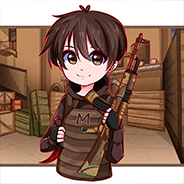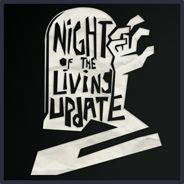с заданием в олимпеаде ломоносов (7 класс) Прочитайте текст по литературе. Установите истинность высказываний True (истинное) и False (ложное), опираясь на информацию в тексте.
Storytelling has been part of our life for thousands of years. People everywhere have told stories to amuse, to teach, to remember and just to pass the time. People started telling stories long before writing was invented. Today, stories are also written down in books of fiction and acted out in movies, television shows and plays. But people all over the world still tell one another stories out loud. A person who can tell a good story nearly always finds an audience.
The Oral Tradition
Before people developed writing, storytelling was the most important way to pass along information. Anything a culture wanted to keep – its beliefs, its history and its traditions – had to be told out loud. Each generation would tell the culture's stories to the next generation. In this way the stories were passed along. Knowledge passed on in this method is called the oral, or spoken, tradition. Even cultures that know how to write still pass along some information in this way.
In some cultures, everyone would pass along the stories. In other cultures, only special storytellers were allowed to do this important job. A culture's best storytellers had good memories. They could also make the tales very entertaining. This helped people listen to their stories and remember them. Sometimes people would sing the stories or tell them in the form of poetry. Melody, rhythm and rhyme can all make stories easier to remember.
However, stories told aloud change over time as different people tell them. A storyteller might change a story on purpose to make it better. Or a teller may just not remember all of a tale well. Unlike written literature, the oral tradition is not created by any one person. Instead, an entire culture helps shape the changing stories across generations. Sometimes the stories are collected and written down long after they have been created.
Types of Stories
Since ancient times stories have taken many different forms. Cultures all over the world tell traditional stories about their gods and beliefs about life. These legends, called myths, are connected with religion. Creation myths explain how a culture believes, or once believed, the world began. Other myths may explain how people were created, why it rains or why there is evil in the world.
Folktales are another form of story common to all cultures. They can be very similar to myths. Folktales take many forms. They may be funny, scary or tell of exciting adventures. Some folktales tell about strong heroes. Other folktales feature clever ‘tricksters' who fool other characters. Other tales may tell of witches, thieves, ghosts, cowboys, talking animals or common villagers.
Fables, fairy tales and nursery rhymes are common types of folk stories. A fable is a short folktale that teaches a lesson about how people should behave. It usually has animal characters that speak and act like people. Fairy tales tell about magical beings such as fairies, elves, dragons and trolls. Nursery rhymes tell entertaining stories in short, clever poems. People have told such stories to children for centuries.
1. People began making up stories after they learned how to write and read.
2. We can find stories only in books.
3. Stories are popular.
4. Stories were created not only for the purpose of entertainment.
5. The invention of the alphabet made it unnecessary to tell stories out loud.
6. Anyone can tell a story out loud well.
7. Anyone can participate in the creation of an oral story.
8. Stories do not change over time.
9. Some stories tell about past events.
10. Many stories across the world feature gods.
11. It is impossible to tell in a story how the world was created.
12. Stories are made up to help people understand the world around them.
13. Folktales, unlike myths, are devoted only to sad topics.
14. Fables were created to tell about the life of wild animals, not of people.
15. Nursery rhymes used to be told to children back in the day, they are no longer popular.
120
206
Ответы на вопрос:
1. isn’t watching, is sleeping
2. what is your sister doing now? is washing
3. is sleeping
4. isn’t sleeping now, is working
5. is talking
1. brushed, went
2. bought
3. what did your friends do yesterday
4. smoked, talked
5. didn’t walk
2. what is your sister doing now? is washing
3. is sleeping
4. isn’t sleeping now, is working
5. is talking
1. brushed, went
2. bought
3. what did your friends do yesterday
4. smoked, talked
5. didn’t walk
Реши свою проблему, спроси otvet5GPT
-
Быстро
Мгновенный ответ на твой вопрос -
Точно
Бот обладает знаниями во всех сферах -
Бесплатно
Задай вопрос и получи ответ бесплатно

Популярно: Английский язык
-
Are these sentences True or False? 1. The Burj Khalifa skyscraper is two...
 arinaambrosova24.05.2021 17:16
arinaambrosova24.05.2021 17:16 -
Which detail from the article BEST states its MAIN idea...
 dina0825408.04.2023 17:16
dina0825408.04.2023 17:16 -
Complete the conversation. What does Sonia say to her mum? Choose from the...
 anaastasiya0421.01.2020 15:39
anaastasiya0421.01.2020 15:39 -
Jenny: This burger is delicious! Do you want some? Jack: No, thank you....
 petrenkof107.10.2020 12:50
petrenkof107.10.2020 12:50 -
Перевести на мой любимый день недели в школе это вторник. в этот день первым...
 Hexihexi15.09.2022 21:53
Hexihexi15.09.2022 21:53 -
Как прочитать по буквами? where are you going, kathy?...
 Eduardo019283746505.12.2020 04:55
Eduardo019283746505.12.2020 04:55 -
Translate into english 1. если бы вы знали лучше грамматику, вы бы не сделали...
 aldjona31.08.2022 18:41
aldjona31.08.2022 18:41 -
Как на будет: 5: 35 19: 24 244 38 35 8: 40 19: 00 20: 00 23: 55 16: 45 2013...
 coldsssiemens16.03.2021 01:35
coldsssiemens16.03.2021 01:35 -
Составьте предложения со словами abuse, threat, threaten, blackmail, steal,...
 hjdbrvjt26.09.2021 02:43
hjdbrvjt26.09.2021 02:43 -
Ответе на языке на вопросы: 1.что ты делаешь когда заболеешь? ты любишь...
 Spudi1426.09.2020 04:42
Spudi1426.09.2020 04:42

Есть вопросы?
-
Как otvet5GPT работает?
otvet5GPT использует большую языковую модель вместе с базой данных GPT для обеспечения высококачественных образовательных результатов. otvet5GPT действует как доступный академический ресурс вне класса. -
Сколько это стоит?
Проект находиться на стадии тестирования и все услуги бесплатны. -
Могу ли я использовать otvet5GPT в школе?
Конечно! Нейросеть может помочь вам делать конспекты лекций, придумывать идеи в классе и многое другое! -
В чем отличия от ChatGPT?
otvet5GPT черпает академические источники из собственной базы данных и предназначен специально для студентов. otvet5GPT также адаптируется к вашему стилю письма, предоставляя ряд образовательных инструментов, предназначенных для улучшения обучения.
